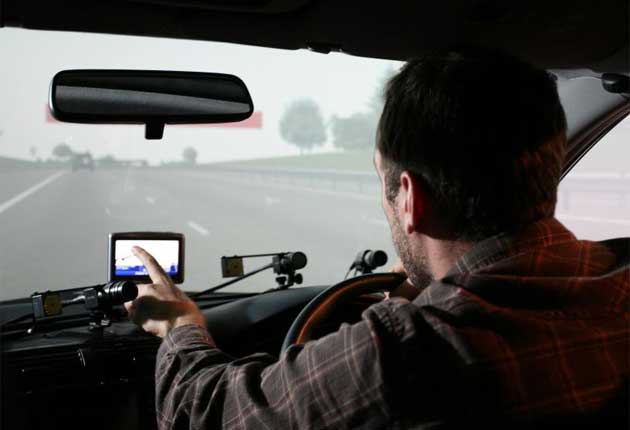Beating the sat nav: the dangerous game with 7 million players
Some drivers believe they may be subconsciously influenced by a desire to 'beat the clock' once a target has been set

Can you reach your destination before the predicted sat nav arrival time? GPS racing is the dangerous new driving game which is placing motorists at risk, according to new figures which suggest that more than 7 million motorists are engaged in a daily race against time inspired by their GPS devices.
Entering the destination in their Garmin or TomTom triggers a frantic battle to beat the estimated arrival time on the road as many drivers exceed the speed limit and throw road safety considerations to the wind.
An ICM survey of drivers found that an estimated 7.2 million have raced to a destination to beat the predicted arrival time on their vehicle's GPS.
Some drivers believe they may be subconsciously influenced by a desire to "beat the clock" once a notional target has been set.
Almost 3.6 million motorists admitted to breaking the speed limit when racing against their GPS in the last 12 months.
Over 144,000 GPS racers admit to having being involved in a collision with another vehicle or hitting a parked car. More than 200,000 motorists have hit the curb while driving erratically and dangerously.
There are also concerns that GPS racing can prompt road rage. More than 161,000 drivers admitted to having flashed their lights or gesticulated at other drivers to try and get them to speed up so they could race to their destination.
Residents of the Yorks and Humber region admit to GPS racing more often drivers in any other area of the country.
The ICM survey found that 1.2 million GPS racers admitted to having driven through amber lights changing to red with more than 570,000 admitting they did not slow down appropriately at roundabouts and crossroads.
Caroline Perry of the road safety charity, Brake said: "People who are racing their GPS system are putting themselves and the lives of other road users at risk. Speeding is a highly irresponsible act which causes deaths and serious injuries on our roads.
"Every road death is unacceptable and causes devastation to families, so it is essential that drivers give the act of driving their full attention when behind the wheel, and they obey the laws of our roads at all times," she said.
Ben Tyte, head of car insurance at Sainsbury's Finance, which commissioned the research said: "Used correctly GPS units are a fantastic invention that help drivers navigate effectively and concentrate on the road far more than when using maps or printed directions.
"However, we are encouraging drivers using this new driving technology to have the safety of any passengers, other road users and pedestrians at the forefront of their minds and not be tempted to become GPS racers."
Join our commenting forum
Join thought-provoking conversations, follow other Independent readers and see their replies
Comments
Bookmark popover
Removed from bookmarks